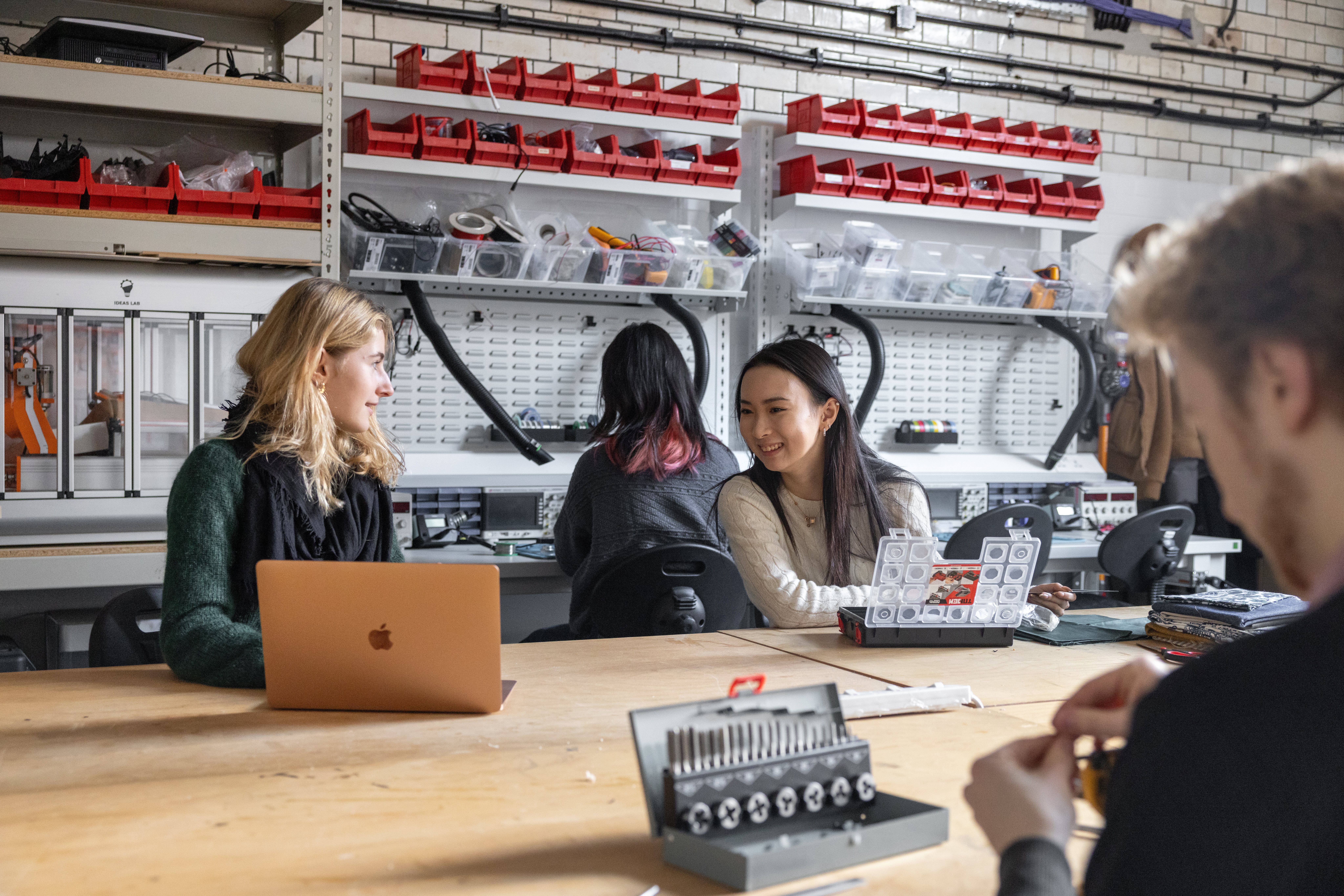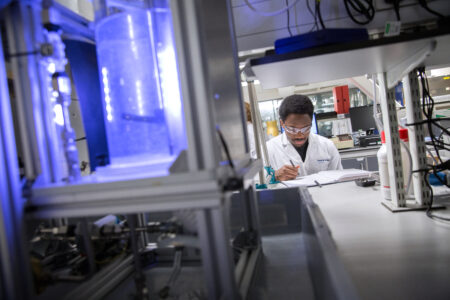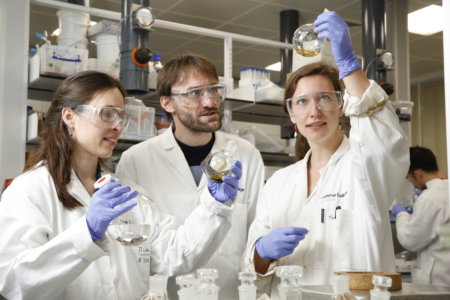With a penchant for mathematics and a love for design and technology, Anusha Narayan always longed for a path that would allow her to blend these strengths. As a Year 12 student attending a Dyson School of Design Engineering open house, that’s exactly what she found. Unsurprising, given its namesake — the Dyson School was founded in 2014 with support from the James Dyson Foundation.
“I was blown away,” she says. “The kind of work being done by students in this department was mind-boggling. They were tackling such complex problems and coming up with solutions to them. That cemented my desire to study in this department. I wanted to be part of such an innovative, creative, purposeful community, and I’ve not been disappointed!”
For the past 10 years, Dyson School of Design Engineering has been offering an Integrated Master’s (MEng) degree, a four-year programme that combines undergraduate and postgraduate study to extend a student’s studies to Master’s level. As a Design Engineering (MEng) student, Anusha fit right in. The curriculum and projects let her develop products and services that address big challenges. In her second year, she worked on a device for severely autistic, non-verbal children as part of the Industrial Design Engineering module. In her final year, she worked on an AI-enhanced student progress-tracking app for the Enterprise Roll-Out module, which led her to participate in the Mayor’s Entrepreneurship competition. “The start-up culture in our department is truly amazing,” says Anusha. In her Master’s project, she explored the sensory experiences of premature babies in neonatal intensive care units, a niche area with limited prior research.

The Dyson School of Design Engineering at Imperial was funded by a 12 million pound donation from the James Dyson Foundation. Source: Imperial College London
Recently, the School has launched three new MSc programmes and an MRes programme tailored to current and future needs of society and the job market for graduates and early career professionals. The Dyson School of Design Engineering gives this level of exposure to all its students. Across its programmes, Imperial’s 10th and newest engineering department empowers tomorrow’s innovators and leaders to integrate engineering analysis, behavioural science and creative practice to build better futures.
For example, the Cleantech Innovation (MSc), delivered together with the Grantham Institute, empowers future climate entrepreneurs with the skills to tackle climate challenges through groundbreaking cleantech solutions. Students will gain expertise in energy, materials, manufacturing, water, transport, and food, enabling them to develop and implement their very own cleantech innovations.
Tailored for engineering graduates, the Design Engineering (MSc) combines design methods, systems thinking, and entrepreneurship. Through project-based learning linked to real-world issues, students merge theoretical insights with practical applications.
Meanwhile, the Design with Behaviour Science (MSc) explores integrating behavioural science into design to develop interventions that promote healthier, more sustainable, or more efficient outcomes. Students will learn to develop and evaluate behavioural design interventions, gaining a deep understanding of user contexts and integrating knowledge across various disciplines. For those aspiring to lead in research, the Design Engineering Research (MRes) programme blends taught modules with a substantial research project, focusing on methods, processes, and tools for designing engineered products and systems.
Each programme is led by academics and researchers who work beyond traditional academic boundaries, partnering with policymakers, industry leaders, and investors to rapidly produce prototypes, policy briefings, and spinout companies. Most importantly, their insights inform the classes they teach.

Imperial ranks second in the world in the QS World University Rankings, renowned for its world-leading research performance, outstanding employability scores, and sustainability commitment. Source: Imperial College London
For instance, Senior Lecturer Dr Céline Mougenot leads the Design with Behaviour Science programme. Her research looks into collaborative design and innovation. “It stems from the fact that the most effective solutions emerge when the people who will ultimately use them are actively involved in the design process,” she says. “Designers and engineers must engage closely with stakeholders from diverse demographics, cultures, and expertise to create truly impactful products, technologies, or interventions.”
In the Human-Centred Design Engineering module, Dr Mougenot guides students through the design process — from user research to ideation, prototyping, and testing. This programme has lots of real-world challenges, with students working in culturally diverse teams to develop with solutions that are both functional and impactful.
Recently, students worked on the theme “Food for Health,” aligning their projects with the UN Sustainable Development Goals. One of the student teams collaborated with food bank volunteers through on-site observations and interviews to identify key challenges, such as tracking and managing food donations. As a solution, they developed a smart scale to streamline this process, giving volunteers more time to focus on addressing food insecurity.
The Dyson School’s state-of-the-art facilities, such as the Human Behaviours Observation Lab, IDEAS Lab, and ACE Workshop, support all stages of the design process. These spaces unite students of all backgrounds and aspirations, and the mix of cultural perspectives plays a key role in preparing them for the global industry.
“It just expands your knowledge base,” says Anusha. “Working with such a diverse group of people means that people can have awareness about things that you may not, and vice versa.”
Larger six-month group projects have tested her understanding of design engineering and preparing her for life graduation. “Now, at the end of the degree, I can look back through the years, and I can see such improvement in my own work and understanding of the subject area,” says the graduate. “In the world of work today, employers are no longer looking for people who can only do one thing, they want employees who can figure it out as they go — that’s the best thing I’ve gained from my time at Imperial.”
Follow the Dyson School of Design Engineering on Instagram, X, LinkedIn, Linktree, and YouTube













